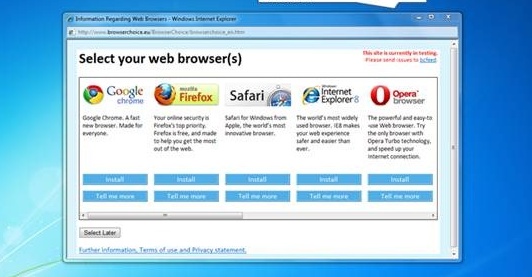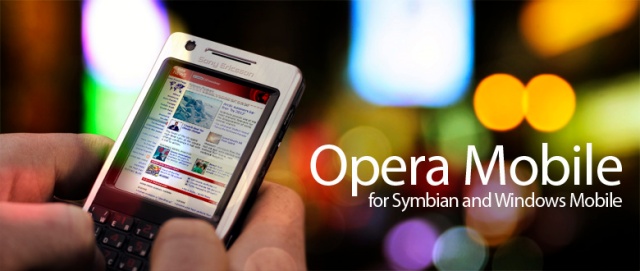With the explosion of cloud computing, the browser is becoming an even more important gateway not just to traditional information-based websites, but services such as mapping, email, productivity and office suites. Couple that with Microsoft using their dominance of the Operating System market to make their Internet Explorer the default choice, and the EU were always going to look at this issue.

So the ballot is a sensible option that makes the browser choice simple for end users, without causing too much trouble in setting up a computer system.
The only question I have is when will we see a similar ballot screen on a mobile device?
Right now, the web browser on a mobile phone is tied very tightly into the operating system. It’s a vital part of how the phone works. Certainly under S60, the web browser plays a huge part in distributed computing, through the use of Widgets. Nokia have the largest market share in the mobile phone market, and as S60 pushes down into the low range handsets, that dominance could allow them to force “standards” onto sites, and not just with widgets, but with formatting of mobile sites and developers writing for a specific browser, rather than the mobile web in general.
Sound familiar?
I’m sure that Opera would like to get a stronger foothold into the smartphone market – the news from the Norwegian company is that the desktop browser ballot has resulted in a threefold increase of downloads of their browser. They already have a foothold in the mobile market with both Opera Mini (Java) and Opera Mobile (native code) versions available for multiple platforms.

Is it right that they get shut out by many because the handsets ship with a browser already installed? Mozilla have their mobile version of Firefox targeted at Maemo and the N900 devices – is there an option to do a deal with Nokia to get on the Internet Computer’s software stack? And there must be someone in Google playing around with builds of the Chrome browser on handsets other than Android.
Of course the marketplace for smartphones is much more competitive, with not only multiple handsets but multiple operating systems out there. You could argue for a long time that this provides the market with enough choice to calm competition regulators; with two year contracts being the norm now, that’s a lot of lock-in to a single platform, and not having any easy alternatives to something as vital as the browser could raise eyebrows in Brussels.
Do I think a protest is likely? No, but I do think that as an ecosystem we need to make sure that the values of openness and choice need to flow through everything in the chain – right now the browser is there, it works, but it, and the protocols it will use for cloud computing, are determined by the market leading company, and that’s a little worrying.
-- Ewan Spence, March 2010.
